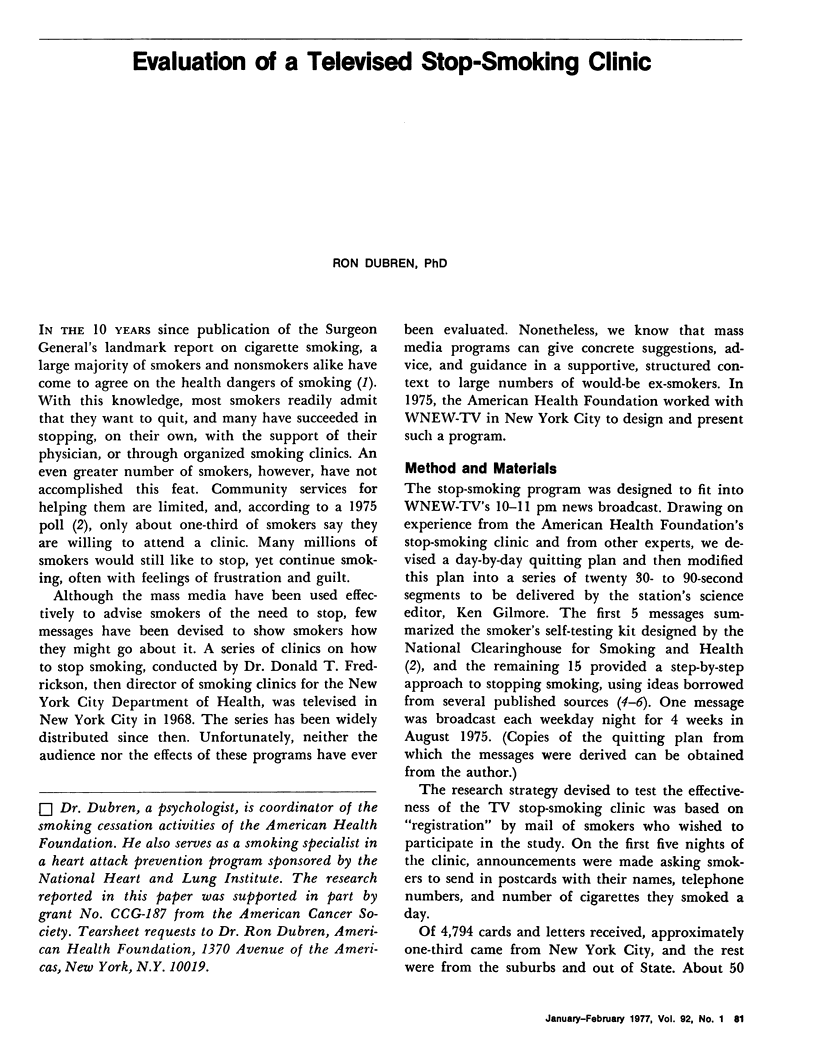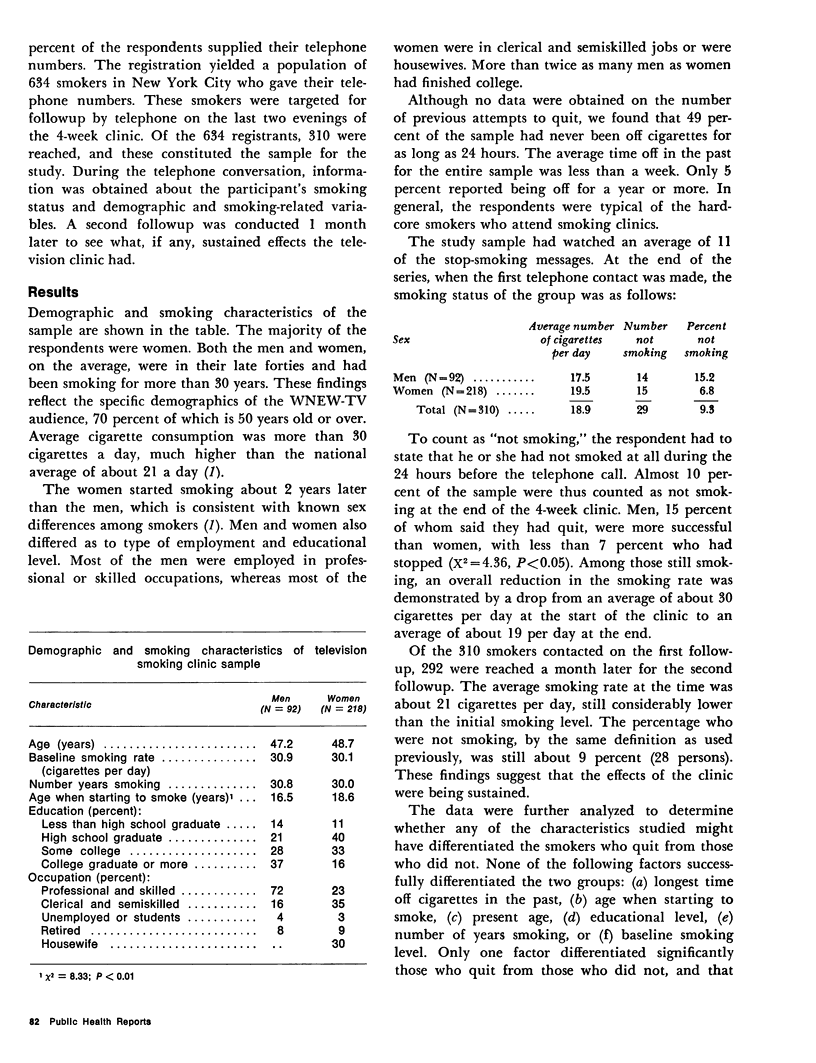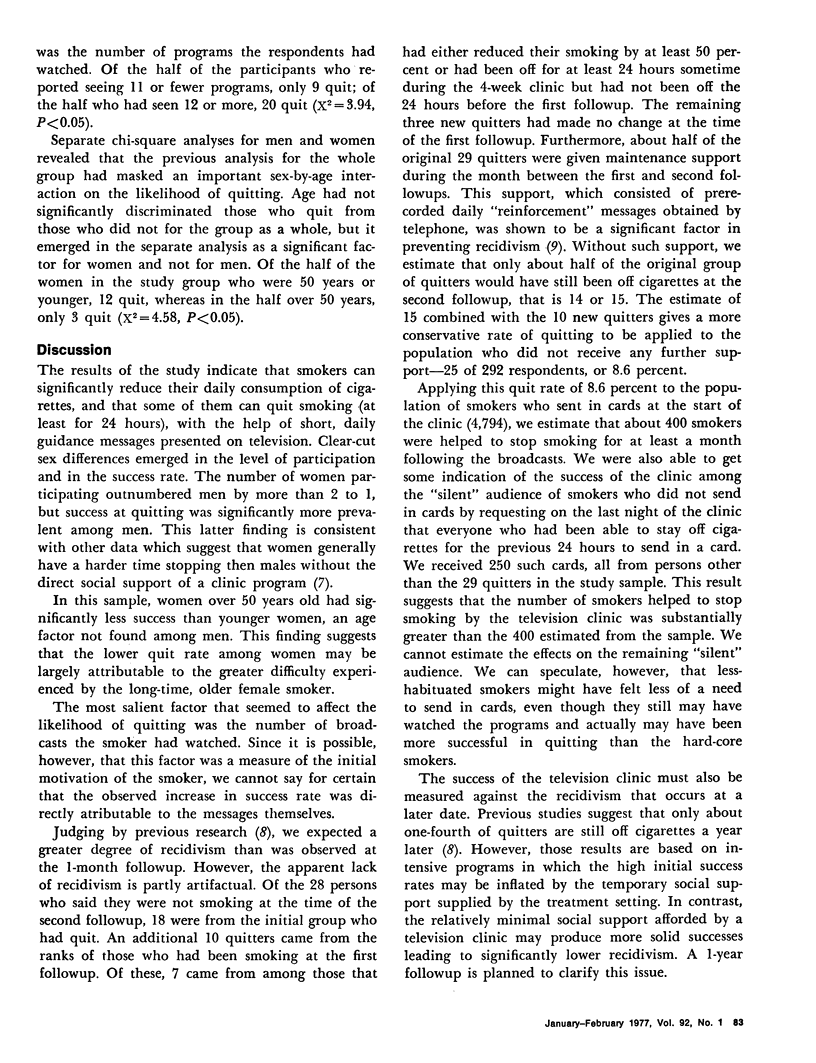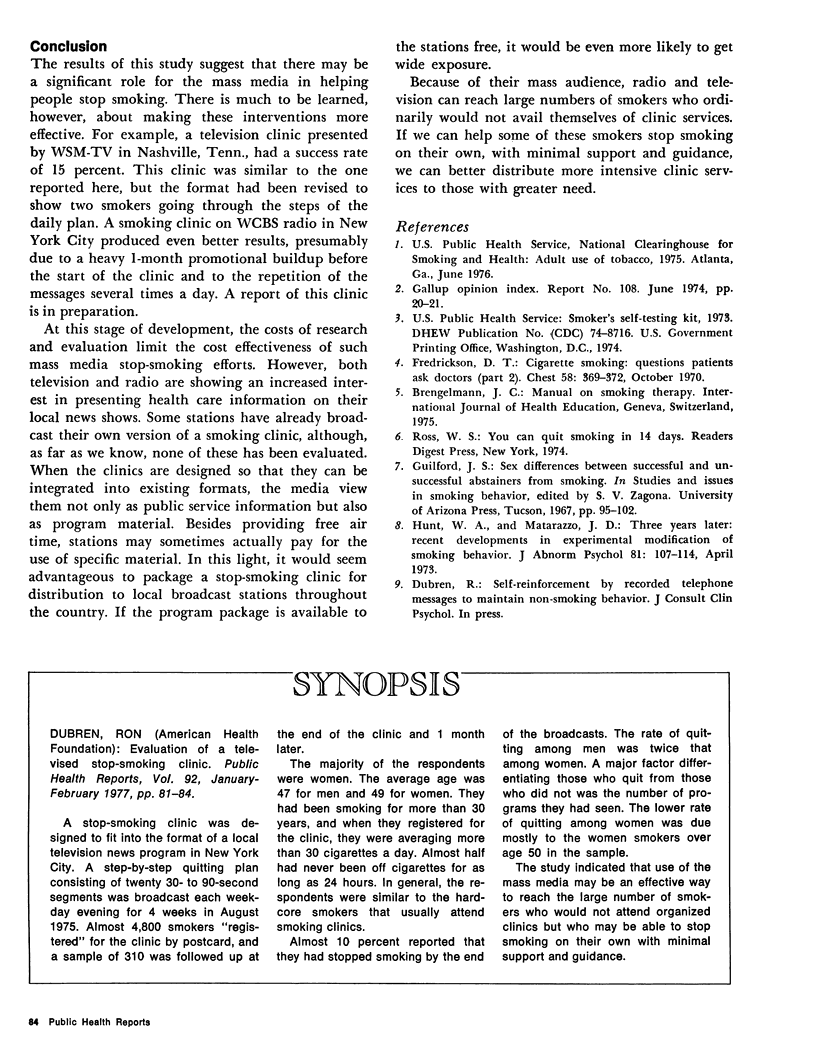Abstract
A stop-smoking clinic was designed to fit into the format of a local television news program in New York City. A step-by-step quitting plan consisting of twenty 30- to 90-second segments was broadcast each weekday evening for 4 weeks in August 1975. Almost 4,800 smokers "registered" for the clinic by postcard, and a sample of 310 was followed up at the end of the clinic and 1 month later. The majority of the respondents were women. The average age was 47 for men and 49 for women. They had been smoking for more than 30 years, and when they registered for the clinic, they were averaging more than 30 cigarettes a day. Almost half had never been off cigarettes for as long as 24 hours. In general, the respondents were similar to the hardcore smokers that usually attend smoking clinics. Almost 10 percent reported that they had stopped smoking by the end of the broadcasts. The rate of quitting among men was twice that among women. A major factor differentiating those who quit from those who did not was the number of programs they had seen. The lower rate of quitting among women was due mostly to the women smokers over age 50 in the sample. The study indicated that use of the mass media may be an effective way to reach the large number of smokers who would not attend organized clinics but who may be able to stop smoking on their own with minimal support and guidance.
Full text
PDF



Selected References
These references are in PubMed. This may not be the complete list of references from this article.
- Fredrickson D. T. Cigarette smoking: questions patients ask doctors. 2. Chest. 1970 Oct;58(4):369–370. doi: 10.1378/chest.58.4.369. [DOI] [PubMed] [Google Scholar]
- Hunt W. A., Matarazzo J. D. Three years later: recent developments in the experimental modification of smoking behavior. J Abnorm Psychol. 1973 Apr;81(2):107–114. doi: 10.1037/h0034553. [DOI] [PubMed] [Google Scholar]


